Sam Davies' emergence confirms fly-half's early promise
- Published
Sam Davies: Ospreys fly-half on his Wales hopes and ambitions
During Wales' summer tour of New Zealand there was no player who commanded more column inches than Ardie Savea.
He of the big hair, the pumping leg-drive and the audacious ball skills. Savea may not be first choice, but he is a rugby rock star and a poster boy for the sport.
Less recognisable - at least outside Wales - is Sam Davies.
But when the two were nominated for the prestigious Junior World Player of the Year Award in 2013, it was Davies who took the honours.
Now 23, the Ospreys' fly-half is delivering on that promise and his form this season has earned him a place in the national squad.
While his admirers have been queuing up to praise him, Davies is only too aware of the fickle nature of professional sport.
"You can't really look into it too much because after a couple of bad games, they could be on your back as well," says Davies.

Dan Biggar (left) and Sam Davies are battling for the number 10 shirt with Ospreys and Wales
"It's nice to see it, but you've got to keep working hard. You can't let yourself slip up in this game because, as an outside-half, you are prone to getting praise, but if you do lose and you are playing a bit iffy, you'll get criticised as well."
At Gowerton Comprehensive School, while Sam was pursuing his fevered interest in both football and rugby, there was another sports-mad kid almost exactly four years older than him, impressing the coaches.
They were never in direct competition because of the age gap, but their careers would follow similar paths - Swansea RFC, the Ospreys … and ultimately Wales.
That other kid was Dan Biggar and, as Sam acknowledges, the dynamic in their relationship has shifted, from that of master and apprentice to that of peers and, more importantly, equals.
"We come from the same school, the same area, we've got the same mates, so it is an interesting one, but at the end of the day I think the rivalry on the field can stay on the field and we can remain mates off it," he adds.
"It is getting a bit more competitive on the training paddock and that's benefiting us both hopefully.
"With Wales, Dan's got 40-plus caps now and he's got the experience these games need, but at Ospreys level it's become a bit more of a battle."
Fly-halves, as a breed, often have to straddle a line between confidence and arrogance. Davies exhibits not a hint of the latter - he's modest, humble and quick to deflect praise.
But his inner confidence is plain to see. Those with smaller reserves might be content to ease their way into a new environment - watching, absorbing, and learning. But that is not the Davies way.
"You can't just come in and think 'I'm third choice' and just rest back and watch the other guys. You've got to be a little bit stubborn about it," he adds.
"You've got to try and express yourself as much as possible.
"Training plays a massive part in selection, so you've just got to take every day as it comes, train as well as you can and if you do train well, hopefully you'll be rewarded."
As rugby grows, so does its audience and so does its legion of armchair critics.
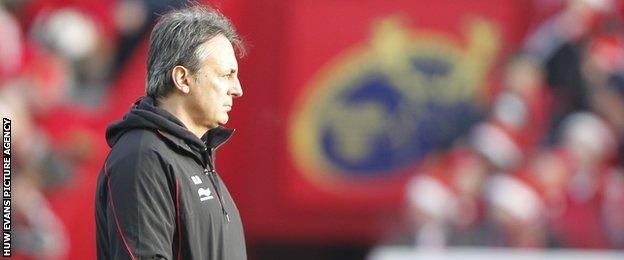
Sam Davies' father Nigel coached Scarlets and Wales
Anyone who plays professionally knows only too well the amount of scrutiny their performances receive.
But there is one opinion he respects above most others and that is that of his father, Nigel Davies - a ball-playing centre who won 29 Wales caps in a decade long career.
"After every game he rings me and he still lets me know how he thinks I went," says Davies.
"That's great for me because it's good to have someone who knows so much about the game … he's able to pick out stuff if there is anything, or if I'm playing well, he'll say 'well done today,' but encourage me to keep my feet on the ground and to keep improving.
Davies' hero is Dan Carter and he's spent many an hour studying the game in the southern hemisphere.
And while he accepts New Zealand are operating on another level right now, he knows Wales' next opponents, Australia, are a lot better than some are giving them credit for.
"If you look at the game from the weekend, Australia were unlucky to have that try disallowed and that could have been a different game had that been awarded," concedes Davies.
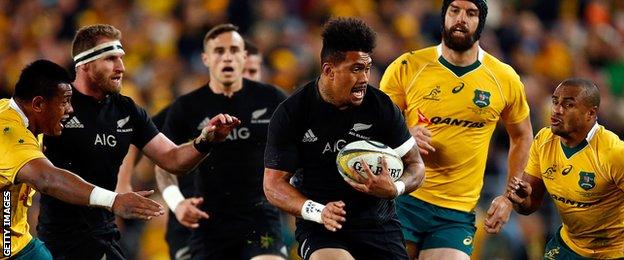
Ardie Savea has impressed during a summer that has seen New Zealand set a record for consecutive international wins
"And if you look at their squad, they've got great players all around the park. To mention just a few, they've got Israel Folau, Foley, Kuridrani, players who can create something out of nothing.
"We're looking at them as really tough opposition, as southern hemisphere teams always are."
New Zealand's 18-match winning run has not only broken records, it's changed the way we view the game. Not long ago, rugby was a game played increasingly by giants and brute force prevailed over skill and guile.
The tide, it seems, is turning and the All Blacks, as always, are leading the way.
You might think that would offer comfort to one of the game's smaller players, but Davies, it transpires, has never been afraid of the rough stuff.
"You've got to just relish it. I look forward to it. I enjoy being involved in these big collisions and I get a thrill from taking them (the big guys) down," he says.
"That was one of my main reasons for moving from football to rugby, because of the physicality."
"I don't put big hits in, but I'm not scared to get in there and try my best."
It's through trying his best, and excelling, that Davies has found himself in the position he's in.
The World Junior Player of 2013 may be about to make a similar statement, but this time on the senior stage.
Watch the full interview on Scrum V, BBC 2 Wales at 18:00 GMT, Sunday, 30 October.
- Published27 October 2016
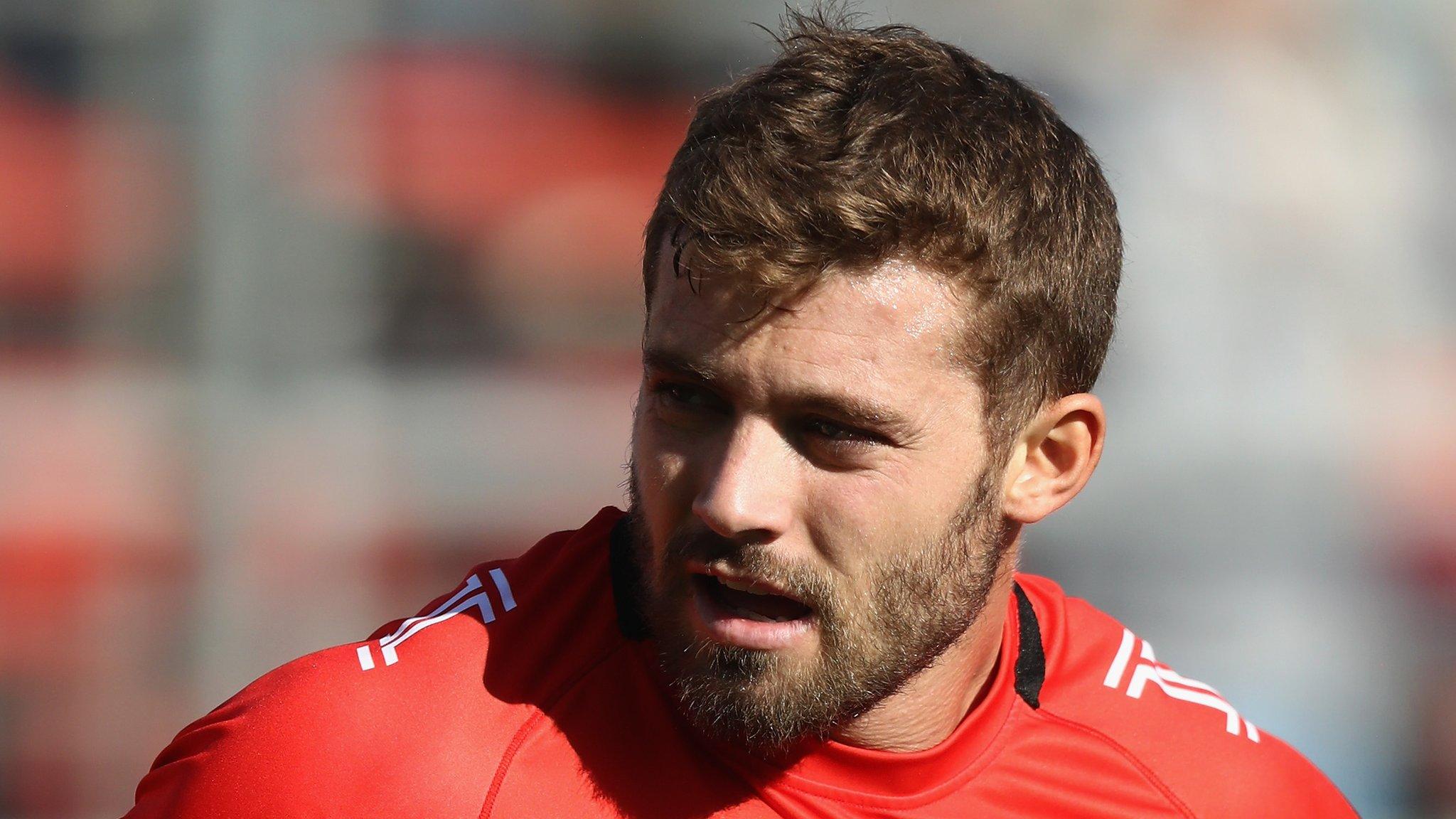
- Published27 October 2016
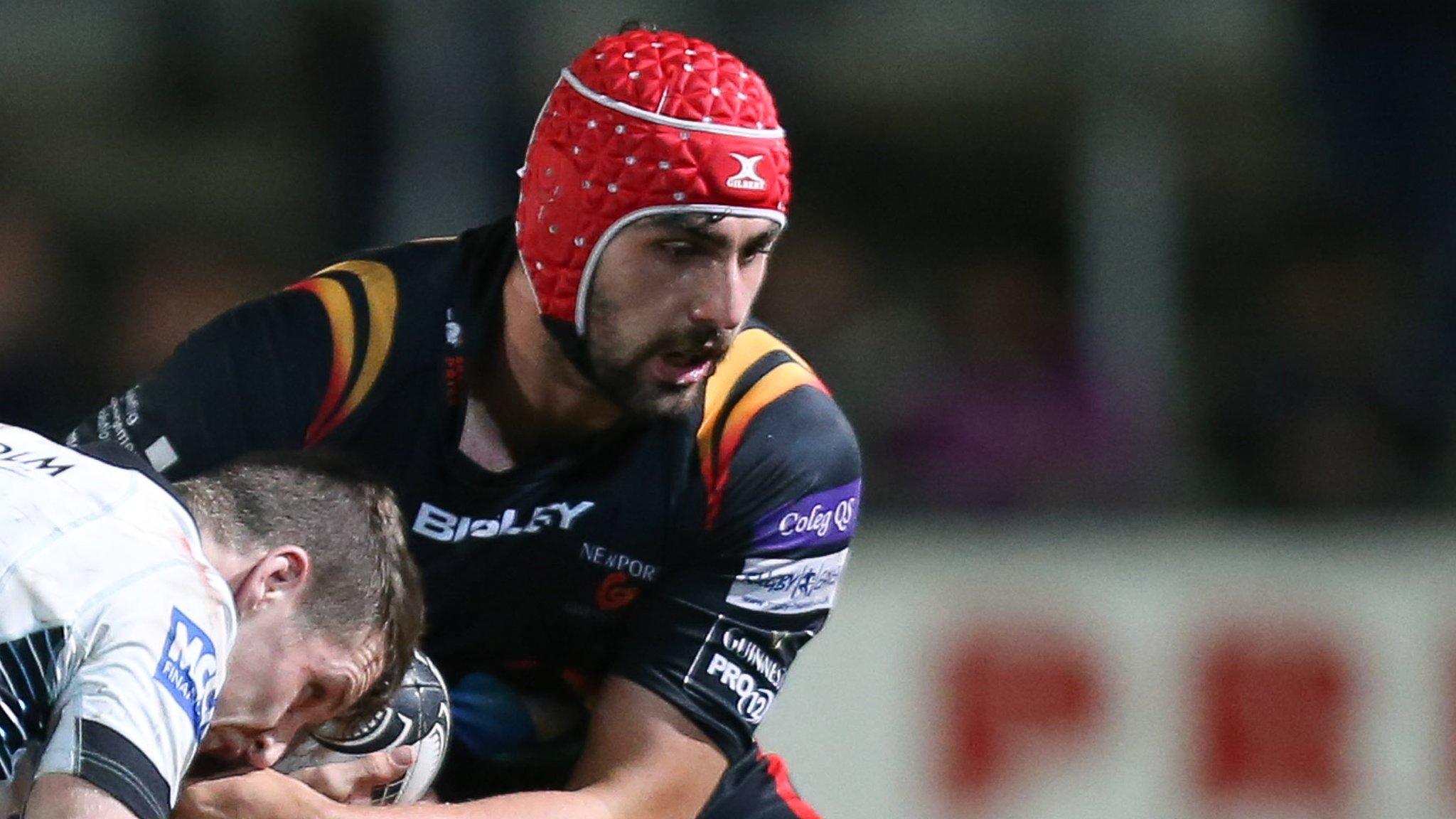
- Published25 October 2016
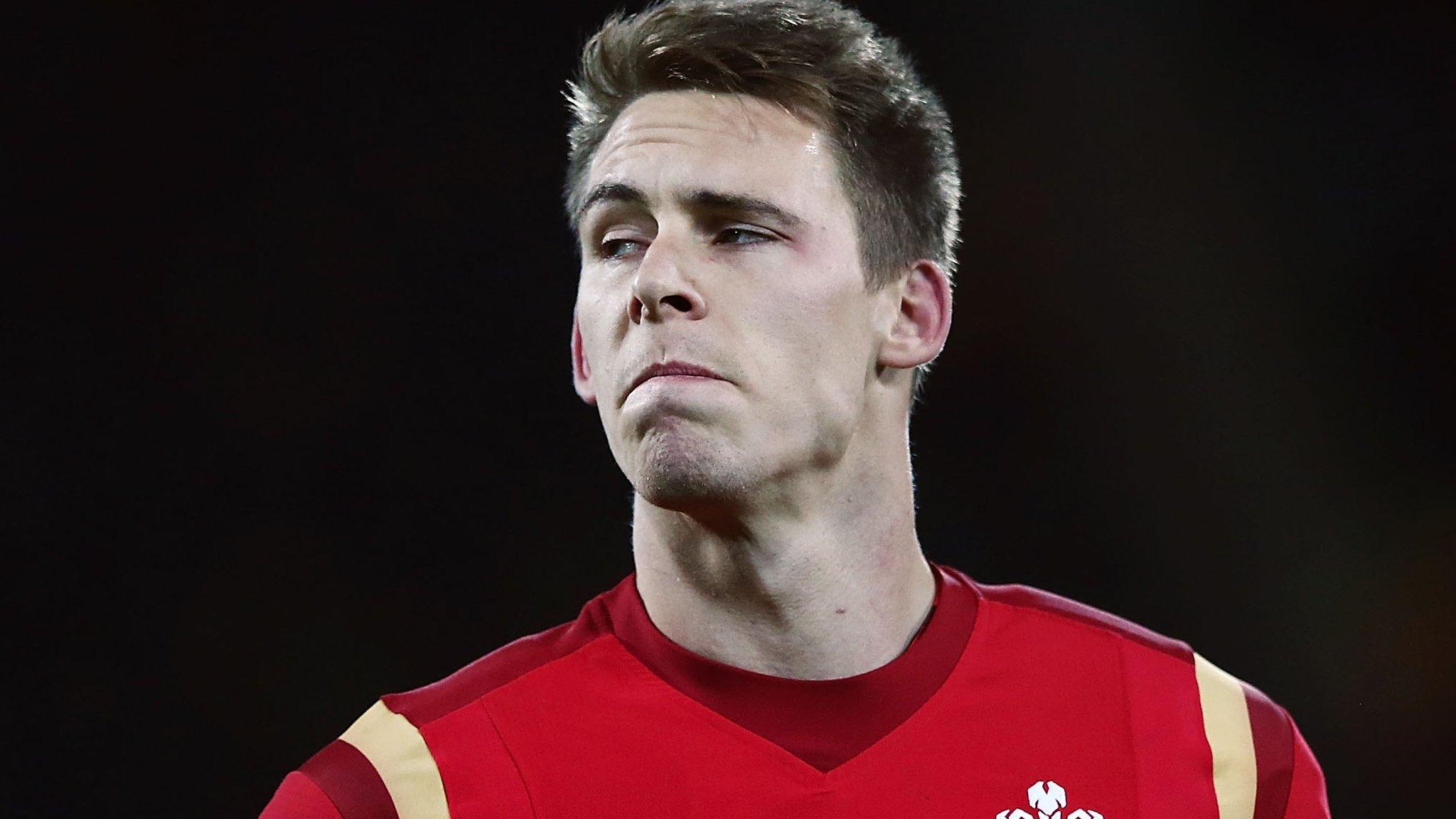
- Published25 August 2011
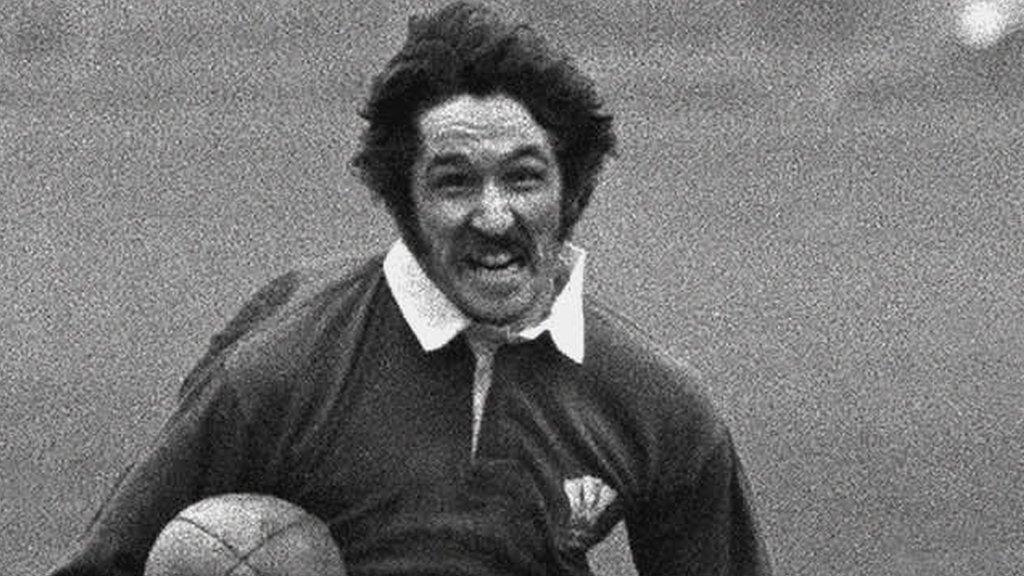
- Published25 March 2018